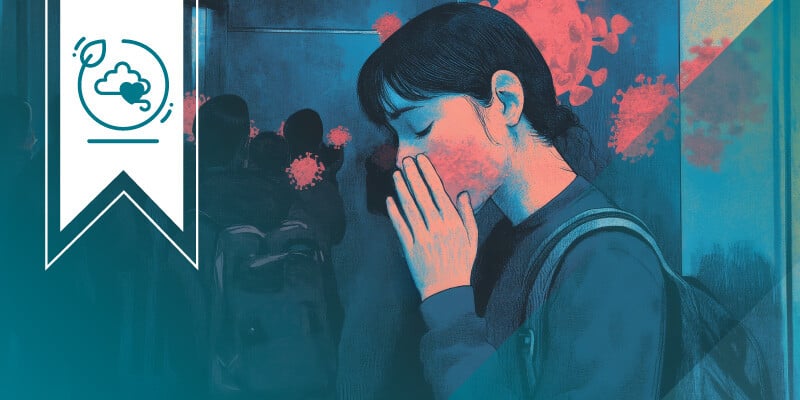While going through medical records at a tea plantation in the Darjeeling district of India, Dr. Michael Matergia and his wife, Denna, discovered the names of children who should have been in Denna’s primary school class, but weren’t. Upon looking in on the children and their families, the couple found the children had died from issues related to diarrhea and fever before the age of five.
“You can read about it all you want in college, but that was the moment we connected that there were these children who had died of completely preventable causes,” Matergia remembers.
In response, the two founded Broadleaf Health and Education Alliance, a nonprofit with the goal of providing evidence-based health and education interventions in rural Indian schools. They observed a number of issues that were contributing to poor health outcomes in India, including unsafe school infrastructure, lack of education about preventative health and hygiene measures, and insufficient primary health screenings. Research has shown that schools can be effective providers of health education and services, but Darjeeling doesn’t have enough healthcare professionals to be able to implement programs.
As an investigator with the Colorado School of Public Health’s Center for Global Health and a family medicine practitioner with the University of Colorado School of Medicine, Matergia and the Broadleaf nonprofit collaborated with the Indian non-profit Darjeeling Prerna to bring a health intervention provided by trained lay volunteers to rural India. The program, called the Comprehensive Health and Hygiene Improvement Program (CHHIP), is supported by the Center for Global Health and includes health classes, school-based treatment, screening and referrals, and improvements to school infrastructure.
The results of this collaboration were recently published in the journal Pediatrics.
The program was particularly effective in low-cost private schools in India, where the occurrence of diarrhea was reduced by more than 40 percent. The students’ health knowledge increased by 13 percent, and the program was well-received by parents and teachers, who reported positive behavioral changes in students and changing school culture by applying teaching strategies learned from volunteers.
The pilot program ran for four years in 22 primary schools. There are plans in place to expand the number of schools using the CHHIP program in India, as well as extending into secondary schools to provide health education across the educational lifespan. The next generation of the program will also focus on mental health hygiene, hoping to use classroom instruction to address developmental and behavioral disorders.
Here in Colorado, Denna is a teacher for Denver Public Schools. She and two other DPS teachers travel to Darjeeling every other year to help train the lay health educators on solid and impactful teaching practices. Their experiences in India have helped forge a learning community among the three, shaping how they conceptualize education, particularly in relation to teaching students of diverse backgrounds. They’ve learned skills and gained perspectives to develop themselves as global citizens and their students as global learners, preparing them to succeed in a globally connected world.
Matergia sees CHHIP as a replicable program that can be used in other schools, applicable in any low-income and low-resource setting, including in the US. “In every community there exists talented community members that can be leveraged to benefit child health,” he says.





